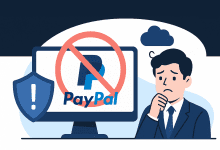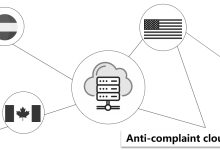Marcus Steele has been in the replica service industry for many years, and every year, without fail, someone new to the scene starts asking the same questions:
-
“Do I absolutely need to own the source code and the server to run a replica store?”
-
“If the server isn’t in my name, does that mean I only have usage rights, not ownership?”
-
“If I don’t have the source code, can I still modify it freely?”
-
“Is it safe to host my store on a server managed by someone else? What if data leaks?”
And so on.
From a beginner’s perspective, these concerns are understandable. Most of the people who ask these questions are newcomers to the industry—often unsure of how things work, and influenced by opinions they find online, which are not always accurate or reliable.
However, those who have spent time in the replica industry and gained real experience rarely worry about these things. In my years of working with clients, I’ve seen that those who succeed in this business almost never stress over who “owns” the server or whether the source code is fully customizable.

Many successful clients I work with have had their replica sites hosted on our servers for years without any issues. Their sites continue to operate smoothly, processing orders day in and day out. In fact, one long-term client—a seasoned expert who runs a large network of SEO-optimized replica sites—has had his infrastructure hosted with us for over 8 years. Our tech team continues to support and maintain his operations without interruption.
What experienced operators truly care about are far more critical questions:
-
Can I collect payments securely?
-
How can I increase my payment limits?
-
Can I run ads without constant bans or shutdowns?
-
Is my traffic consistent and scalable?
In other words, building a replica site is just the most basic part of the business. It’s like the fishing rod for a fisherman—important, but easily replaceable. The real concern should be whether you’re actually catching any fish.
There are plenty of rods out there. It’s what you do with them that counts.
If you’re new to the replica industry and still debating whether you must control the server and have access to the full source code, you’re not alone. Many beginners get stuck on this question. But instead of just wondering, it helps to break things down and look at the issue from a few practical angles:
① . Which Service Providers Usually Offer Full Source Code?
It’s easy to understand: legitimate service providers who aim to operate long-term in the replica space almost never offer open-source code. Why? Because building a stable, fully functional platform requires serious development resources—and giving that away cheaply would mean exposing their entire core system to anyone, opening the door for infinite copycats. That’s simply bad business.
If that logic doesn’t convince you, think about platforms like Shopify or BigCommerce. Why do they charge annual subscription fees? Because they don’t give away their proprietary systems for free. These companies sustain themselves by keeping their infrastructure closed and stable, while continuing to update and support their software.

On the other hand, individual freelancers or small-time teams often take a different approach. They promote the idea of “fully open-source” simply because they want to make a quick sale. They don’t have overhead costs, they don’t provide ongoing updates, and they don’t plan to support you long-term. Their model is simple: copy, sell, repeat.
Once they deliver the code to you, it’s all yours—but after-sales support is no longer their responsibility. Need to fix bugs or add new features later? That’s extra. In many cases, they charge again just to tweak small things. From their perspective, it’s all justified—they gave you the code, end of story.
②. Is Owning a Set of Source Code Really That Valuable?
Let’s be honest. If you’re a newcomer with zero coding ability, and if you’re entering the replica business for the first time, owning a set of source code doesn’t mean much at all.
If you believe that AB-site redirection is a long-term solution, that once the cash flow starts rolling you’ll avoid account bans and frozen payments, and that all you need is one set of source code to run independently—then sure, go ahead and set up your own server. There are plenty of options out there.
In the website-building space, there are two kinds of non-open-source providers:
-
Mainstream SaaS platforms like Shopify, BigCommerce, etc., which are great for general products but unsuitable for replica businesses.
-
Replica-focused private service providers, who have grown directly from within the replica ecosystem. These teams know the challenges, the risks, the patterns, and the strategies unique to the replica world. They don’t just provide a website—they offer a complete stack: storefront, payment routing, ad setups, supply chain solutions, and more.
For a beginner with no coding experience, just having the code means very little.
You may have set up a server and deployed your code, and everything looks good… on the surface. But running a live site 24/7 brings long-term challenges:
-
What happens when you need to change a small feature?
-
What if your site faces a DDoS attack?
-
What if you run into a phishing trap like GBC enforcement?
If you have no development skills, you can’t fix it yourself. And if your original provider only gave you the code, don’t expect free lifetime support. “Lifetime support” is a common promise before you pay—but rarely real after.
There’s a saying in Chinese business culture: “No profit, no service.” And it’s true—no provider will endlessly serve a zero-profit client. Even the best system will encounter issues over time. Technology evolves. New threats appear. What worked yesterday might break tomorrow. Your ability to respond depends on the technical support you can rely on.
Unless someone’s just blowing smoke, no one can promise a platform that will never fail.
Take DDoS attacks, for example — a common problem replica site owners eventually face.

To a developer, it may sound simple: “Just buy a firewall and deploy it.”
But things are never that easy.
What if you’re facing resource-exhaustion-style DDoS attacks?
As a beginner, you likely don’t have the skills to block IP ranges, identify traffic patterns, or configure web server rules.
At that point, your only solution may be something as primitive as “change the domain.”
But for replica operators who rely on SEO traffic, domain continuity is critical.
Swapping domains casually can kill months of SEO effort. Some beginners can’t even re-deploy SSL correctly via SSH when switching domains, which leads to broken access or flagged sites.
That’s the real cost of trying to go solo without technical ability.
③. Why Service Hosting Is the Smart Choice
Let’s face it: Making money in this industry is never easy, and not having coding skills means you’re bound to face tech issues over time. Service hosting is often the smarter path forward.
A). Lower Startup Cost
Choosing the right company to host your system dramatically lowers your technical and operational costs.
It’s like outsourcing your IT department. Instead of hiring a full-time developer (which could cost $3,000+ per month), you’re paying for a ready-made technical team that handles everything for you: bug fixes, updates, monitoring, and optimization.
Otherwise, you’ll find yourself constantly chasing freelancers to fix bugs, tweak features, or solve emergencies. It’s stressful, time-consuming, and in the long run — more expensive.
B) Stay Up to Date With the Industry
Technology evolves fast — and so do enforcement methods and anti-replica measures.
The idea that one set of code can “conquer the industry” is wishful thinking.
Take the notorious GBC enforcement phishing traps, which are a real threat to replica payment processors.
Our solution? We leverage “GBC IP blacklist identification libraries” and other smart detection methods to proactively avoid risk.
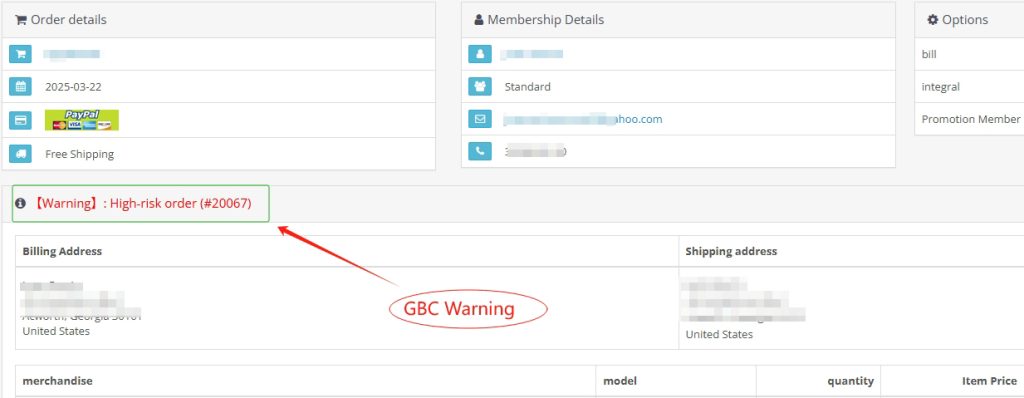
When your server is hosted with a professional company, you benefit from data aggregation across a large user base.
For example, our systems aggregate flagged IPs, blacklisted domains, suspicious email patterns, delivery locations, and even phone numbers — all fed back into the system to trigger high-risk order alerts and predict GBC enforcement attempts.
That kind of threat intelligence sharing simply isn’t possible if you’re running a single server with static code, disconnected from a larger network.
No wonder many independent operators get caught by GBC — they lack access to real-time defense data.
In contrast, our hosted clients face far fewer GBC incidents because of this proactive infrastructure.
④. Is Server Hosting Really a Data Security Risk?
At first glance, it may seem that hosting your site on someone else’s server gives the provider access to your data — customer info, order details, traffic logs, etc. So, is your data really safe?
Before jumping to conclusions, there are two key things to consider:
A). It Depends on the Reliability of the Service Provider
Let’s be real: the replica site service market is a mixed bag.
There are shady providers — typically freelancers or small teams — who try to poach customer data from clients in hopes of developing their own replica stores.
Most of them don’t even know why their own products don’t sell.
They don’t understand the industry, don’t follow the latest methods, and end up chasing shortcuts.
Our company has been serving replica clients for many years. We don’t claim to be perfect, but one thing we can say clearly:
We have never touched our clients’data.
We’re confident enough to say:
If any client can provide concrete proof that we used their buyer data — even one single case — we’ll pay them 10,000 dollors in compensation.
And this world is small. If someone really uses your buyer list without permission, you’ll find out fast.
Even if you don’t notice right away, your buyers will — trust me, they’ll be the first to ask questions.
B) Having Buyer Data ≠ Having Value
Some people think:
“If I get access to precise buyer data, I can blast out emails or spam them via WhatsApp.”

Here’s the reality: It doesn’t work.
Even if you mass send 1,000 or 10,000 messages, the result will be zero.
Anyone who has done cross-border business knows this already.
This is not 2010 anymore. Mass emailing and cold WhatsApp messages don’t convert.
Even ignoring issues like account bans and low deliverability, the real problem is user behavior.
Out of 100 foreign buyers, 99 will ignore you or block you.
 The 1 who replies will probably ask suspiciously:
The 1 who replies will probably ask suspiciously:
“How do you know my contact info?”
And the next step?
They’ll message your original client and ask:
“Has your website changed? Is this person you?”
Boom — your client now knows their data was compromised.
And the fallout begins.
So no, this has nothing to do with how accurate the data is. The problem is that the method — mass spamming — is fundamentally flawed.
As I’ve said in earlier blog posts:
Proactive outreach marketing like cold emailing or WhatsApp blasts = near zero ROI.
If you’re serious about building a long-term replica business, reputation and buyer trust are worth far more than scraping data and annoying potential leads.
C) Mass Contact Lists Are Everywhere — and Practically Worthless
Let’s talk facts.
If you really want “precise” buyer contact data, you can buy it from logistics providers.
Literally — you can get 10,000 contacts for under $100.
That’s less than one cent per line.
If you’re looking for broader, less targeted data, just spend a few hundred dollars — or do it yourself.
Fire up a Python scraper, run it on Google or Facebook groups for a few days, and boom — you’ll have more data than you know what to do with.
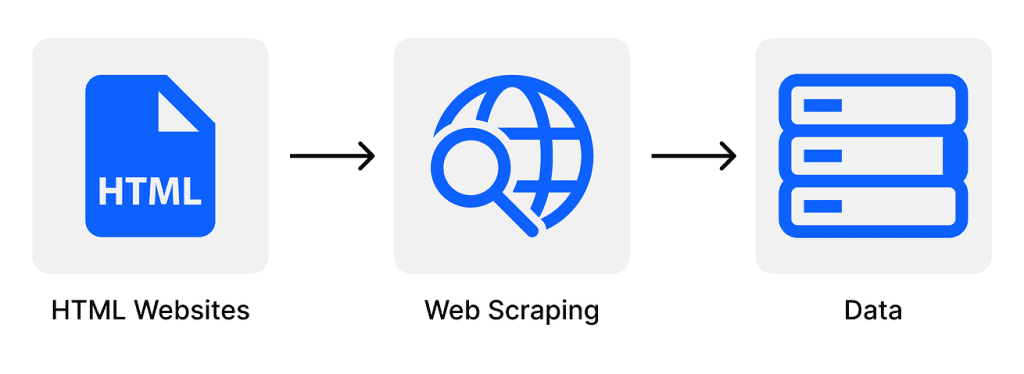
Seriously, there are entire Telegram channels and shady forums where this kind of “bulk data” is sold by the truckload.
Or just go buy email or phone number databases directly — the cost is laughably low.
And yet… all of this is practically useless.
You can crawl and collect data for weeks, but it won’t make your replica business successful.
Why?
Because contact data alone doesn’t convert. You’ll spend your time spamming the internet, only to be blocked, flagged, or ignored.
Again — if cold outreach worked, everyone would be rich by now. But the reality? Almost nobody responds.
⑤ . You Don’t Need Direct Server Access to Run a Replica Site
Let’s get one thing straight: most replica site operators don’t actually need direct access to the server.
In practice, daily operations don’t rely on server control at all. You’re not deploying code updates every day or modifying system files.
Most of the time, any interaction with the server is simply about uploading files — like product images or banners.
But here’s the thing:
Any decent website service provider will give you a user-friendly admin panel with built-in upload functionality.
You don’t need to mess around with FTP or SSH just to update your product catalog.
So if you’re worrying about “not having the server in your hands,” think again.
Not owning the server doesn’t mean you lose operational control.
You still manage your content, process orders, run ads, and handle customers — all from your backend dashboard.
In short:
Direct server access sounds important — but in reality, it doesn’t affect your ability to run and grow your replica site at all.
Final Thoughts: Is Owning Code and Servers Really That Important?
After everything we’ve covered, ask yourself again:
Is full control over source code and servers really essential?
Wouldn’t it be smarter to focus on stability, support, and results?
Because the truth is — so-called “open-source” codebases are everywhere.
Outdated scripts, floating around on forums, passed from one operator to the next.
But technology evolves quickly, and without maintenance, upgrades, and security, those scripts become liabilities, not assets.
Running a replica business is like fishing:
When you buy a fishing rod, your concern shouldn’t be how long you’ll own the rod — but whether it can catch big fish.
It’s also like running a store:
When you rent a location, you don’t obsess over property rights — you focus on driving traffic and making sales.
In Putian — the heart of China’s replica industry — no one obsesses over platforms or code ownership.
When eBay was working, people ran on eBay.
When AliExpress was hot, they jumped on that.
When Dewu (Poizon) surged in popularity, they rode the wave again — making money and moving on, without leaving a trace.
We don’t need to understand Google’s algorithm like a Silicon Valley engineer.
We don’t need to build a car from scratch.
We just need to know how to drive, and know how to get traffic.

There’s a saying in Chinese:
“A good wind can lift you all the way to the sky.”
Meaning: leverage the right tools, ride the momentum, and use what already works — that’s how you scale faster and go further.
And in the replica industry, that’s exactly how it works.
🔧 Custom-Built Replica Sites. Full Control. Maximum Safety.
Looking to launch a replica product store quickly?
We offer professional, self-hosted replica website solutions tailored for stability, payment safety, and long-term scalability.
📩 Get in touch via Telegram or Email for a 1-on-1 consultation.
 Custom E-commerce Solutions for High-Quality Designer-Inspired Fashion Replicas | Website Development, Dropshipping, Payment Integration for PayPal and Stripe, Ad Cloaking Services
Custom E-commerce Solutions for High-Quality Designer-Inspired Fashion Replicas | Website Development, Dropshipping, Payment Integration for PayPal and Stripe, Ad Cloaking Services
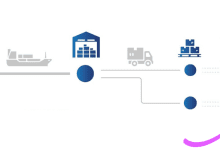



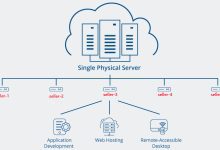
![5 Best WordPress Themes for Replica Product International Trade Websites [Recommended]-Custom E-commerce Solutions for High-Quality Designer-Inspired Fashion Replicas | Website Development, Dropshipping, Payment Integration for PayPal and Stripe, Ad Cloaking Services](https://replicasmaster.com/wp-content/uploads/2025/06/1-1-220x150.jpg)









